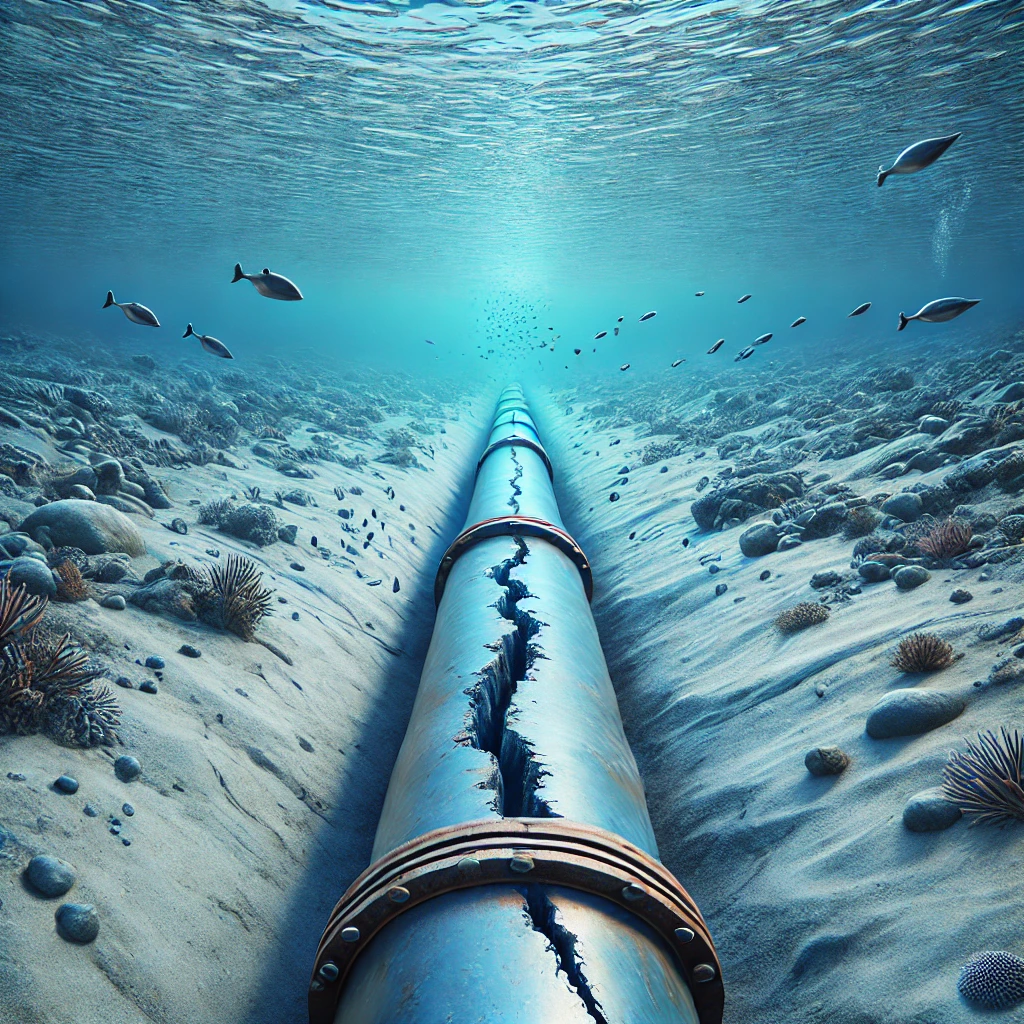Non-military Russian ships have been spying on pipelines and cables in the North Sea for years, and it is happening on a much larger scale than was previously known, according to an investigation by the Belgian newspaper De Tijd and Follow the Money (FTM).
The investigation revealed that 167 non-military Russian ships have conducted 945 suspicious activities near critical infrastructure in the North Sea over the past decade. These ships included research vessels, cargo ships, refrigerated ships, tankers, fishing boats, and even passenger vehicles.
The “suspicious actions” occurred in the economic zones of North Sea countries, including Belgium, the Netherlands, Denmark, Germany, the United Kingdom, and Norway. Russian ships consistently approached within a kilometre of pipes and cables, lingering there for extended periods.
“Deviating sailing patterns are not necessarily suspicious. On the contrary, that happens very often, even with non-Russian ships,” Thomas De Spiegelaere, spokesperson for the Directorate General of Shipping, told De Tijd. “But it is suspicious if that happens above pipelines and cables.”
There are growing concerns in Europe about Russia targeting seabed cables and pipes for sabotage, tapping, or manipulation.
De Spiegelaere acknowledged that Europe’s underwater infrastructure had not been properly monitored for years, as it was never previously considered a security priority. “We never thought that those pipes and cables could be sabotaged,” he said. The military has become more vigilant since 2019, especially after the sabotage of the Nord Stream gas pipeline in 2022.
“No sabotage has been detected on Belgian or Dutch cables,” De Spiegelaere noted. “But explosives have been found on a British cable at the beginning of the Ukraine crisis.”
The Times reported that NATO has serious suspicions that Russia might have mined critical undersea infrastructure in the North Sea. Discussions about various Russian reconnaissance and sabotage activities in the area have been ongoing for some time. However, direct claims about the potential mining of interconnectors, fibre-optic communication lines, gas pipelines, and oil pipelines mark a significant escalation.
A Critical Challenge to NATO
This situation presents a critical challenge. The technology to detect and deactivate such mines does exist, but its effectiveness depends on the specific circumstances.
Modern technology heavily relies on the seabed for information and energy transmission. Searching for “submarine cables” online reveals the extensive network of undersea cables connecting continents, particularly between America and Europe.
The Baltic Sea, for example, is a densely trafficked area due to the technological development of the EU countries surrounding it, excluding Russia.
Certain areas, like the North Sea and the Baltic Sea, have shallow depths where Russian operations could be feasible. Russia possesses advanced capabilities, including deep-sea exploration and sabotage tools managed by the secretive Main Directorate of Deep-Sea Research (GUGI), part of the Ministry of Defence.
Based on the Kola Peninsula, GUGI operates sophisticated submarines capable of deploying mini-submarines like the “Losharik,” which can operate undersea, conducting various underwater tasks.
Russian Capabilities and Western Paradoxes
Russian capabilities include special apparatuses and human-operated vehicles capable of working at depths up to six kilometres.
These technologies allow Russia to locate and potentially compromise undersea cables. The equipment used by GUGI often originates from Western Europe, particularly Scandinavia, highlighting a paradox where Western technology enables potential threats to its own infrastructure.
Sanctions have slowed Russia’s ambitions, but the threat remains. Effective monitoring and safeguarding these undersea infrastructures are crucial.
Read also:
Click here for more News & Current Affairs at EU Today
____________________________________________________________________________________________________________

